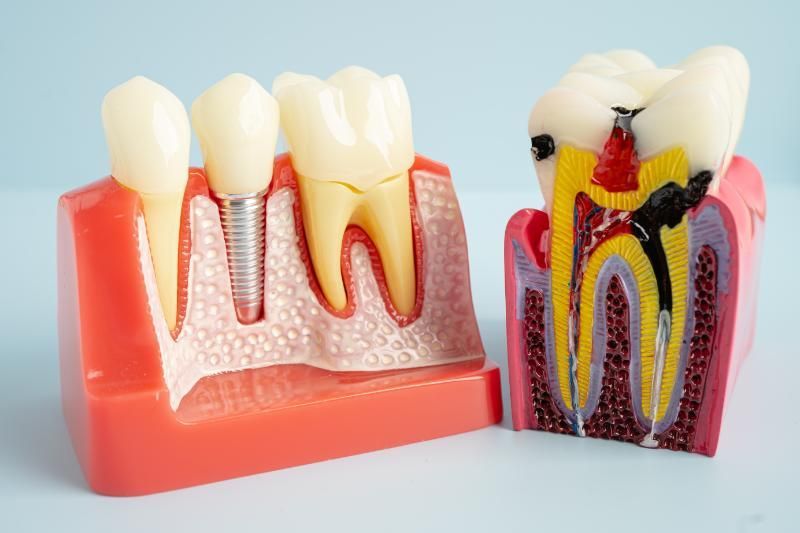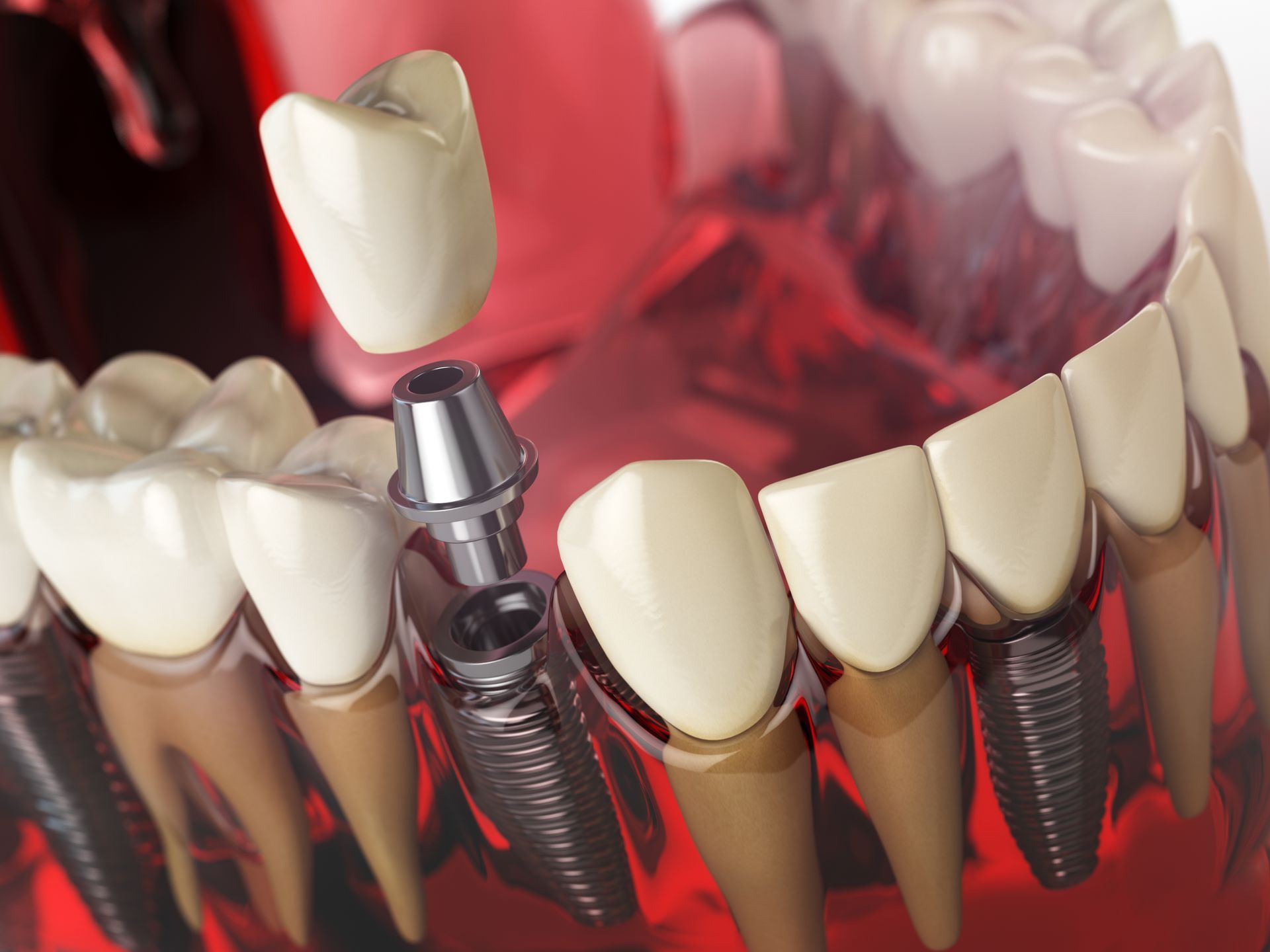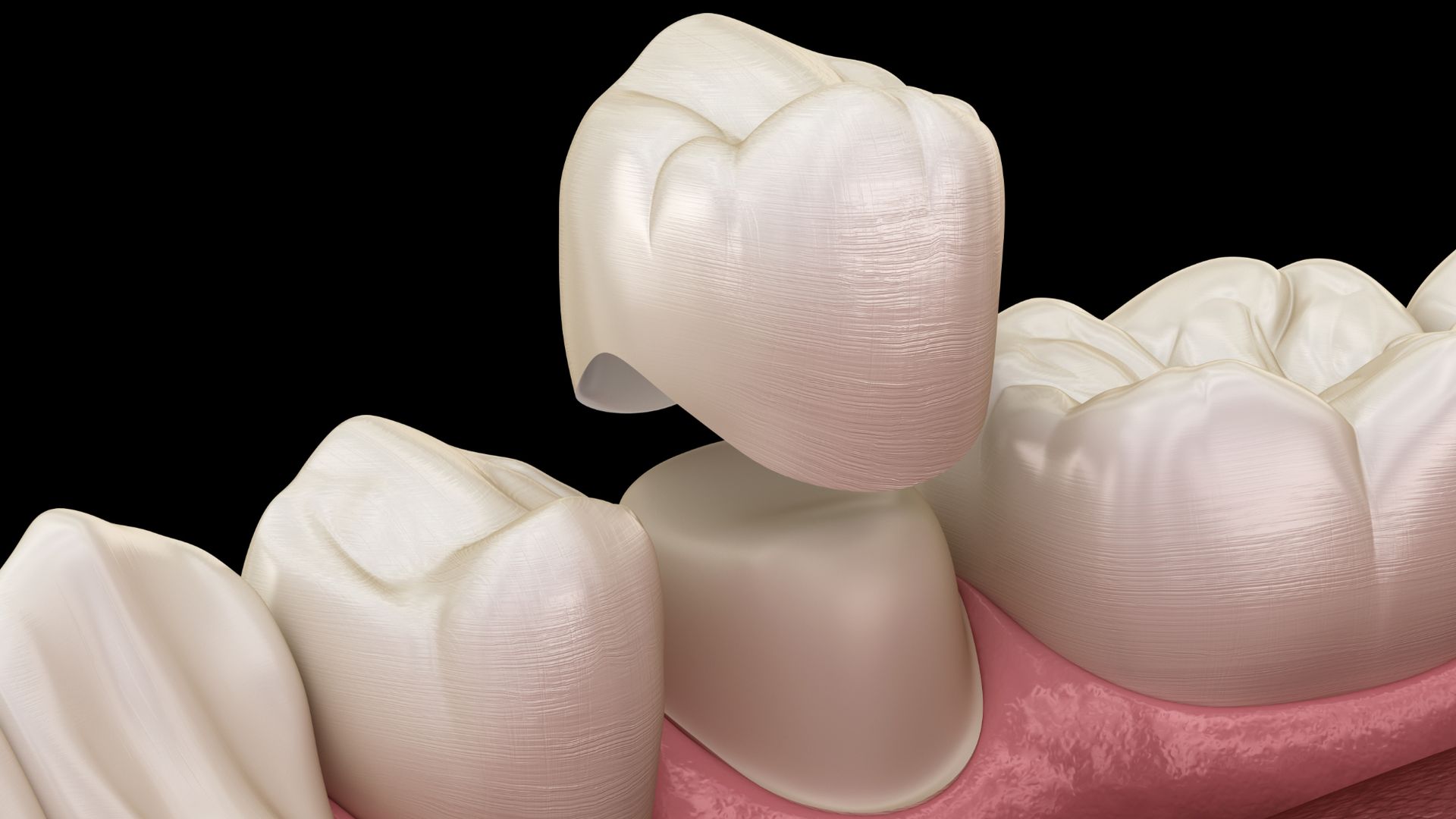Best Dentist Who Do Dental Implants: Your Essential Guide

Need a dentist who do dental implants? This guide is here to help. We’ll explain what dental implants are, identify the types of dentists who do dental implants and can perform the procedure, and guide you on how to choose the best specialist for your needs. Read on to find all the information you need for a successful dental implant experience.
Key Takeaways
- Dental implants consist of three key components: a titanium post, an abutment, and a crown, mimicking the function and appearance of natural teeth.
- Selecting the right dental specialist—whether a general dentist, oral surgeon, periodontist, or prosthodontist—is crucial for a successful dental implant procedure, particularly for complex cases.
- Regular maintenance, including effective daily oral hygiene and routine dental check-ups, is essential for the longevity and health of dental implants.
Understanding Dental Implants

Dental implants are a sophisticated solution designed to replace missing teeth with artificial teeth that look, feel, and function like natural teeth. The process involves surgically placing a titanium post into the jawbone, which acts as a root for the artificial tooth. Over time, new bone forms around the implant, securing it firmly in place and ensuring long-term stability, thanks to advancements in dental implant technology.
This remarkable technology not only restores aesthetics but also improves chewing function and speech clarity, making it a preferred choice for many.
Components of Dental Implants
Familiarizing yourself with the components of dental implants helps in understanding their functionality. The three primary components include the titanium post, the abutment, and the crown. The titanium post is surgically inserted into the jawbone, serving as a sturdy foundation akin to a natural tooth root.
The abutment then connects the post to the crown, which is the visible part of the implant, custom-made to blend seamlessly with your natural teeth. Together, these components work in harmony to provide a durable and aesthetically pleasing replacement for missing teeth.
Benefits of Dental Implants
The benefits of dental implants are numerous and impactful. Here are some key advantages:
- Superior durability and longevity, often lasting a lifetime with proper care
- Closely mimic the appearance and function of real teeth
- Enhance not only your smile but also your ability to chew and speak clearly
Moreover, dental implants help preserve the health of surrounding teeth and jawbone, preventing bone loss and maintaining facial structure.
Types of Dentists Who Perform Dental Implants

Choosing the right dentist for your dental implant procedure is paramount to ensuring a successful outcome. General dentists, oral surgeons, periodontists, and prosthodontists all play significant roles in the dental implant process. While general dentists can handle straightforward cases, complex procedures often require the expertise of specialists such as oral surgeons and periodontists.
Prosthodontists, on the other hand, focus on the aesthetic and functional aspects of the final restoration. Each type of dentist brings unique skills and knowledge to the table, making it essential to select the right professional based on your specific needs.
General Dentists
General dentists are often the first point of contact for patients considering dental implants. They provide initial consultations, assess patient eligibility, and can perform straightforward implant surgeries. However, they may refer patients to specialists for more complex cases that require additional procedures such as bone grafting.
Inquiring about a general dentist’s training and experience in implant dentistry ensures they are qualified to handle your case. Many general dentists collaborate with specialists to provide comprehensive care, ensuring all aspects of the dental implant procedure are expertly managed.
Oral Surgeons
Oral surgeons are dental professionals who specialize in surgical procedures involving the mouth and jaw. After completing dental school, they undergo additional years of training as an oral surgeon in oral and maxillofacial surgery, equipping them with the skills required for complex implant cases.
Oral surgeons are particularly adept at handling procedures that involve bone grafting or sinus lifts, making them the go-to specialists for patients with insufficient bone structure. Their extensive expertise ensures that even the most challenging dental implant surgeries are performed with precision and care.
Periodontists
Periodontists are specialists in the prevention, diagnosis, and treatment of gum diseases, playing a crucial role in the success of dental implants. Healthy gums are essential for the stability of dental implants, and periodontists focus on maintaining and restoring gum health.
Patients with gum disease or other periodontal issues often seek the expertise of periodontists to ensure their gums are in optimal condition before undergoing implant surgery. This specialized knowledge in gum health makes periodontists valuable members of the dental implant team, particularly for patients with existing gum health concerns.
Prosthodontists
Prosthodontists specialize in the restoration and replacement of damaged or missing teeth with artificial devices. They undergo advanced training in various areas. This includes diagnosis, treatment planning, and placement of dental implants. Prosthodontists work closely with general dentists and oral surgeons to ensure the aesthetic and functional outcomes of dental implants meet patient expectations.
Their focus on achieving a natural look and feel for the replacement teeth makes them integral to the dental implant process, especially for patients seeking the best possible aesthetic results.
Choosing the Right Specialist for Your Dental Implant Procedure
Selecting the right specialist for your dental implant procedure is a crucial step in ensuring a successful and comfortable experience. Depending on the complexity of your case, you may need to consult with multiple dental professionals, including oral surgeons, periodontists, and prosthodontists.
Consider the specific needs of your situation, such as underlying oral health issues or the need for additional procedures like bone grafting. By carefully evaluating qualifications, experience, and patient reviews, you can make an informed decision and choose the best specialist for your dental implant journey.
Evaluating Professional Qualifications
Assessing the professional qualifications of your dental implant specialist ensures effective treatment. Look for credentials that indicate specialized training and certifications in implant dentistry. Being a member of professional organizations shows dedication to remaining informed about recent developments in the industry. It highlights a commitment to continuous learning and professional growth.
During the initial consultation, a thorough evaluation of your oral health will be conducted to formulate a detailed treatment plan. Consulting with multiple professionals and reviewing their credentials can help you choose the best-qualified dentist for your needs.
Considering Experience and Track Record
The experience and track record of your dental implant specialist play a crucial role in the success of the procedure. Inquire about the specialist’s success rate with dental implants and their experience handling cases similar to yours. A dentist with substantial experience in implant dentistry is more likely to deliver successful outcomes.
Evaluating the practical experience and proven track record of your chosen specialist can significantly influence the success rates of your dental implant procedure.
Reading Patient Reviews and Testimonials
Reading patient reviews and testimonials is an invaluable part of selecting a dental implant specialist. Patient feedback provides insights into the dentist’s proficiency, commitment to patient satisfaction, and the overall treatment experience.
Consider reviews that discuss the treatment process, post-implant care, and the longevity of results. Testimonials from referring patients can help you gauge the quality of care and the outcomes you can expect from your chosen specialist.
The Dental Implant Procedure

The dental implant procedure is a multi-stage process that begins with an initial consultation and planning, followed by the surgical dental implant placement of the implant, and concludes with the attachment of the abutment and crown. This comprehensive process ensures that the dental implant procedures integrate seamlessly with your jawbone and provides a stable foundation for the artificial tooth.
Understanding each stage of the dental implant procedure can help you prepare and set realistic expectations for your treatment journey.
Initial Consultation and Planning
The initial consultation and planning phase is crucial for the success of the dental implant procedure. During this stage, a thorough evaluation of your oral health is conducted to determine if you are a suitable candidate for implants. If you have periodontal disease or insufficient jawbone tissue, additional procedures such as bone grafting may be necessary.
Consulting with a periodontist can be beneficial if gum and bone health are vital considerations for your implant surgery.
Implant Surgery and Healing
Implant surgery involves the precise placement of a titanium implant post into the jawbone. Local anesthesia is administered to ensure comfort during the procedure. After the implant post is inserted, a healing period of approximately 3-6 months is required for the bone to fuse with the implant, ensuring stability and long-term success.
This healing phase is critical as it allows the implant to integrate with the jawbone, providing a strong foundation for the artificial tooth.
Placement of Abutment and Crown
Once the implant has fully integrated with the jawbone, the next step is the placement of the abutment, which acts as a connector between the implant and the crown. The abutment is positioned above the gum line, and a custom-made crown is then attached to it.
The crown can be secured using screws or dental cement, depending on aesthetic needs and patient preferences. This final step completes the dental implant process, restoring both the function and appearance of your missing tooth.
Cost and Financing Options for Dental Implants

The cost of dental implants can vary significantly based on the complexity of the procedure and the materials used. Financial planning is crucial as dental implants represent a significant investment in your oral health. While some dental insurance plans may offer partial coverage, it’s essential to verify the specifics with your provider.
Additionally, various financing options, including medical credit cards and in-house payment plans, can make the cost of dental implants more manageable.
Insurance Coverage
Insurance coverage for dental implants varies widely among providers. Some modern dental insurance policies include partial coverage for implants, but it’s important to verify the specifics of your plan. Many policies may not fully cover the cost of implants but might contribute to related procedures such as extractions or crowns.
Understanding your insurance coverage can help you plan better and reduce out-of-pocket expenses.
Payment Plans and Financing
Payment plans and financing options are available to help manage the cost of dental implants. Medical credit cards like CareCredit offer specialized financing with low or no interest rates, allowing patients to pay in installments. Many dental practices also provide in-house financing options, enabling patients to spread out payments over a period that suits their budget.
Exploring these options can make dental implants more affordable and accessible.
Maintaining Your Dental Implants

Maintaining your dental implants is essential for ensuring their longevity and overall oral health. Regular dental check-ups and proper daily oral hygiene practices are critical to the success of your implants.
Following recommended care routines and visiting your dentist regularly ensures you enjoy the benefits of your dental implants for a lifetime.
Daily Oral Hygiene Practices
Daily oral hygiene practices are paramount to maintaining the health and longevity of your dental implants. Using a soft-bristled toothbrush and implant-specific toothpaste helps prevent gum irritation and ensures thorough cleaning around the implants. Flossing daily with specialized tools designed for implant care helps remove plaque and food particles.
Additionally, rinsing with an antiseptic mouthwash can eliminate bacteria and promote overall oral health, protecting both your implants and natural teeth.
Regular Dental Check-ups
Regular dental check-ups are essential for monitoring the condition of your dental implants and ensuring their long-term success. These visits allow your dentist to identify and address any issues early, such as peri-implantitis, which can lead to complications if left untreated. Professional cleanings during these visits help remove plaque and tartar that regular brushing may miss, further safeguarding the health of your implants.
With proper care and regular check-ups, dental implants can provide a lifetime of benefits.
Summary
Dental implants offer a durable and natural-looking solution for replacing missing teeth, significantly enhancing your oral health and quality of life. Understanding the components and benefits of dental implants, choosing the right specialist, and following proper maintenance routines are crucial steps in ensuring the success of your dental implant procedure. By making informed decisions and committing to regular care, you can enjoy the long-term benefits of dental implants, restoring both function and confidence.
FAQ
Frequently Asked Questions About Dental Implants
Share This Blog













